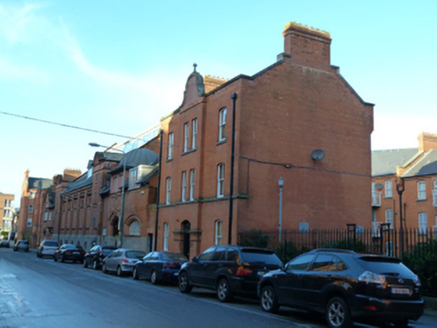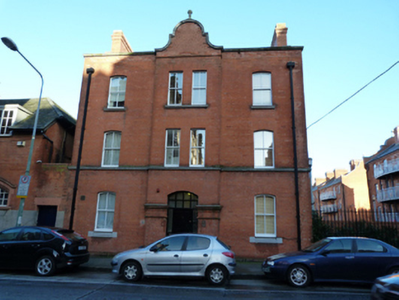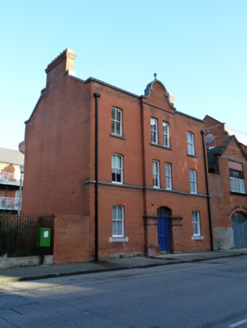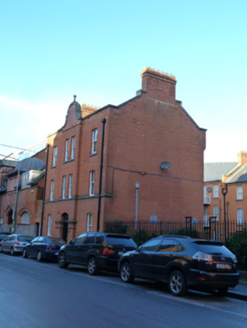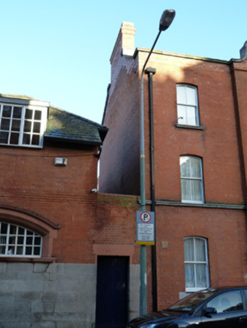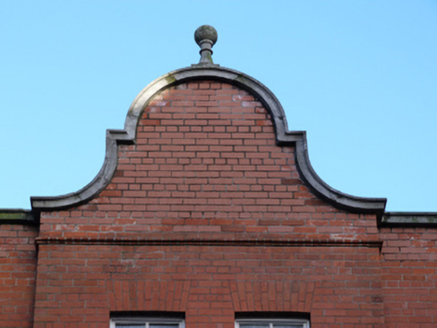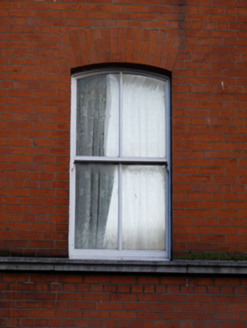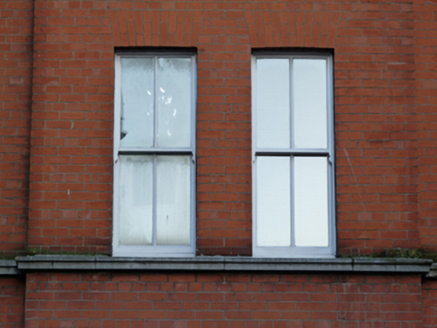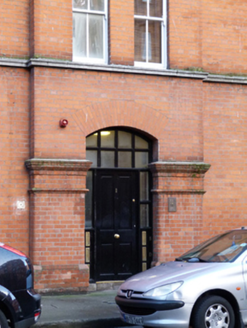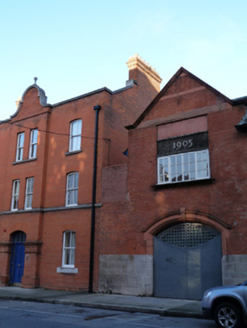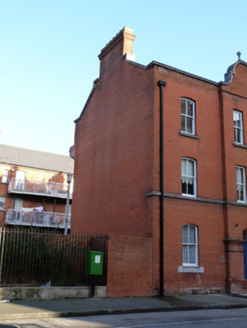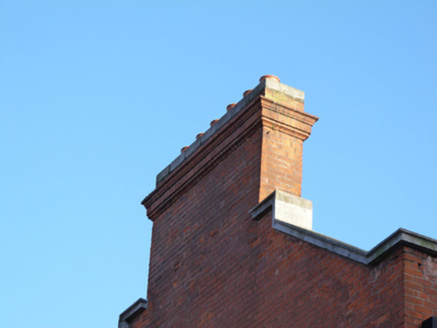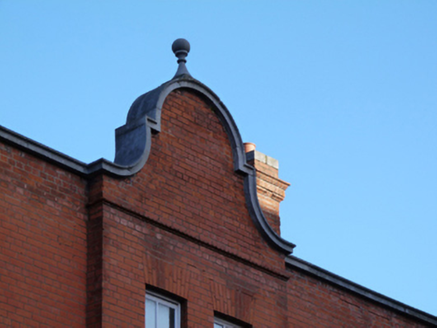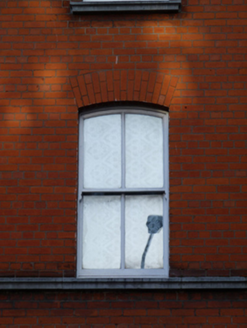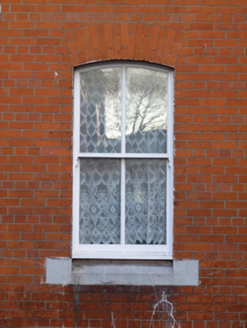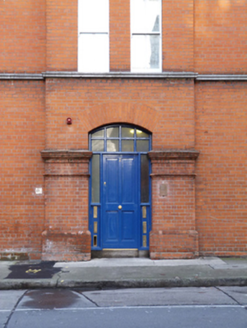Survey Data
Reg No
50080688
Rating
Regional
Categories of Special Interest
Architectural, Historical, Social
Original Use
Apartment/flat (purpose-built)
In Use As
Apartment/flat (purpose-built)
Date
1895 - 1905
Coordinates
315169, 233742
Date Recorded
31/12/2013
Date Updated
--/--/--
Description
Group of two north-facing three-bay three-storey residential tenement blocks, built 1900-01, with central entrance breakfront having shaped gablet to each block. Refurbished 2000, with recent balconies to rear (north) elevation. Pitched slate roofs with red brick chimneystacks and cast-iron rainwater goods. Red brick parapet with carved granite coping, shaped gablets to front elevations. Red brick walls laid in English garden wall bond having brick plinth course. Some later brickwork. Segmental-headed window openings with brick voussoirs and reveals. Paired square-headed window openings with brick voussoirs and reveals to breakfront. Two-over-two pane timber sash windows. Flush granite sills to ground floor, continuous granite sill course to first floor and carved granite sills to second floor. Segmental-headed door openings with brick piers, brick voussoirs and reveals. Timber panelled door with overlight and sidelights.
Appraisal
The Bride Road Flats form part of the most significant renewal scheme undertaken in Dublin during the late nineteenth and early twentieth centuries. Developed for Dublin Corporation and designed by C. J. McCarthy, these purpose-built tenement buildings provided improved quality housing for hundreds of families. This block form is repeated on the adjacent streets of Ross Road, Bride Street and Nicholas Street. Often referred to as tenement blocks, this simply refers to their form, with several apartments accessed by one staircase. The residential blocks on Bride Road are relatively plain, though they are enlivened by the addition of the curved gablets and central breakfronts, motifs also seen in the facades of the nearby Iveagh Buildings. The variety in the window design, and particularly the sill types, provide architectural detail to the front facades.
